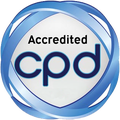Chromosomal Abnormalities
Chromosomes are the structures that hold qualities. Qualities are the individual guidelines that advise our bodies how to create and work; they represent physical and therapeutic attributes, for example, hair shading, blood classification and weakness to disease.Many chromosomes have two sections, called "arms," isolated by a squeezed district known as the centromere. The shorter arm is known as the "p" arm. The more drawn out arm is known as the "q" arm.A picture, or chromosome guide, of every one of the 46 chromosomes is known as a karyotype. The karyotype can distinguish anomalies in the structure or the quantity of chromosomes.
Most chromosome irregularities happen as a mischance in the egg or sperm. In these cases, the variation from the norm is available in each cell of the body. A few irregularities, be that as it may, happen after origination; then a few cells have the variation from the norm and some do not.Chromosome anomalies can be acquired from a guardian, (for example, a translocation) or be "once more" (new to the person). This is the reason, when a kid is found to have an irregularity, chromosome studies are regularly performed on the often.
Related Conference of Chromosomal Abnormalities
21th World Congress on Tissue Engineering Regenerative Medicine and Stem Cell Research
16th International Conference on Human Genetics and Genetic Diseases
19th International Conference on Genomics & Pharmacogenomics
Chromosomal Abnormalities Conference Speakers
Recommended Sessions
- Bioprocess Engineering and Biomarkers
- Cancer Genomics
- Chromosomal Abnormalities
- Clinical applications and diagnostics
- Cytogenetics
- Ecogenomics
- Evolution of Novel Genes
- Gene Expression, Regulation And Cloning
- Gene Mapping
- Genetic counseling
- Genetic Disorders Tests
- Genetic engineering techniques
- Genetic Testing Market
- Genetically modified organisms
- Genomic analysis
- Genomic data
- Genomic medicine
- Global DNA and Gene Chip (Microarrays)
- Medical genomics
- Microbial genetics
- Molecular Medicine
- Next generation sequencing
- Novel medical Devices
- Pedigree Methods
- Personalised genomics
- Pharmacogenetics
- Polygenic inheritance
- Prenatal diagnosis
- Reprogenetics
- Teratogenesis and their effects
- Tissue culture techniques
- Tissue Engineering and Regeneration
- Transgenic Research
- Tumor Markers
Related Journals
Are you interested in
- 3D Bioprinting, Organ Fabrication & Bioartificial Tissues - Stem Cell 2026 (Netherlands)
- Aging Biology, Longevity Science & Cellular Rejuvenation - Stem Cell 2026 (Netherlands)
- Animal Genetics - Genome 2026 (Singapore)
- Artificial Intelligence and Computational Biology in Regenerative Medicine - Stemgen 2026 (Japan)
- Bioinformatics and Computational Biology - Genome 2026 (Singapore)
- Bioinformatics, AI Models & Predictive Regeneration - Stem Cell 2026 (Netherlands)
- Biomarkers and Microarrays - Genome 2026 (Singapore)
- Biomaterials and Nanotechnology in Regenerative Medicine - Stemgen 2026 (Japan)
- Cancer Genomics - Genome 2026 (Singapore)
- Cancer Stem Cells & Targeted Therapeutics - Stem Cell 2026 (Netherlands)
- Cancer Stem Cells and Oncology - Stemgen 2026 (Japan)
- Cardiac, Vascular & Musculoskeletal Regeneration - Stem Cell 2026 (Netherlands)
- Cardiovascular Regeneration - Stemgen 2026 (Japan)
- Clinical genomics - Genome 2026 (Singapore)
- Clinical Translation of Stem Cell Therapies - Stem Cell 2026 (Netherlands)
- Clinical Trials and Translational Stem Cell Research - Stemgen 2026 (Japan)
- Commercialization, Biobanking & Industry Innovations - Stem Cell 2026 (Netherlands)
- Comparative Genomics - Genome 2026 (Singapore)
- Epigenomics and Epigenetics - Genome 2026 (Singapore)
- Ethical, Legal, and Social Implications in Stem Cell Research - Stemgen 2026 (Japan)
- Ethical, Regulatory & Quality Control Frameworks - Stem Cell 2026 (Netherlands)
- Exosomes, Extracellular Vesicles & Cell-Free Therapeutics - Stem Cell 2026 (Netherlands)
- Functional Genomics - Genome 2026 (Singapore)
- Future Trends: Organoids, Bioengineering, and Next-Generation Therapies - Stemgen 2026 (Japan)
- Gene Editing and CRISPR Technologies - Stemgen 2026 (Japan)
- Gene Editing and Genetic Engineering - Genome 2026 (Singapore)
- Gene Editing, CRISPR Therapies & Regenerative Genomics - Stem Cell 2026 (Netherlands)
- Genetic Disorder - Genome 2026 (Singapore)
- Genomic Instability - Genome 2026 (Singapore)
- Genomic Medicine - Genome 2026 (Singapore)
- Induced Pluripotent Stem Cells (iPSCs) and Reprogramming - Stemgen 2026 (Japan)
- Mesenchymal Stem Cells (MSCs) in Therapy - Stemgen 2026 (Japan)
- Microbial Genomics - Genome 2026 (Singapore)
- Next generation sequencing - Genome 2026 (Singapore)
- Nutrigenomics - Genome 2026 (Singapore)
- Personalized and Regenerative Medicine - Genome 2026 (Singapore)
- Pharmacogenomics - Genome 2026 (Singapore)
- Plant Genomics and Molecular Pharming - Genome 2026 (Singapore)
- Regeneration in Neurodegenerative & Spinal Cord Disorders - Stem Cell 2026 (Netherlands)
- Regenerative Approaches in Diabetes & Metabolic Disorders - Stem Cell 2026 (Netherlands)
- Regenerative Dentistry and Craniofacial Applications - Stemgen 2026 (Japan)
- Regenerative Immunology & Immune Modulation - Stem Cell 2026 (Netherlands)
- Regenerative Medicine and Tissue Engineering - Stemgen 2026 (Japan)
- Stem Cell Banking and Cryopreservation - Stemgen 2026 (Japan)
- Stem Cell Biology and Cellular Mechanisms - Stemgen 2026 (Japan)
- Stem Cell Engineering & Cellular Reprogramming - Stem Cell 2026 (Netherlands)
- Stem Cells in Neurological and Neurodegenerative Disorders - Stemgen 2026 (Japan)
- Structural Genomics - Genome 2026 (Singapore)
- Tissue Engineering, Biomaterials & Smart Scaffolds - Stem Cell 2026 (Netherlands)
- Trends in Genomics and Pharmacogenomics - Genome 2026 (Singapore)


